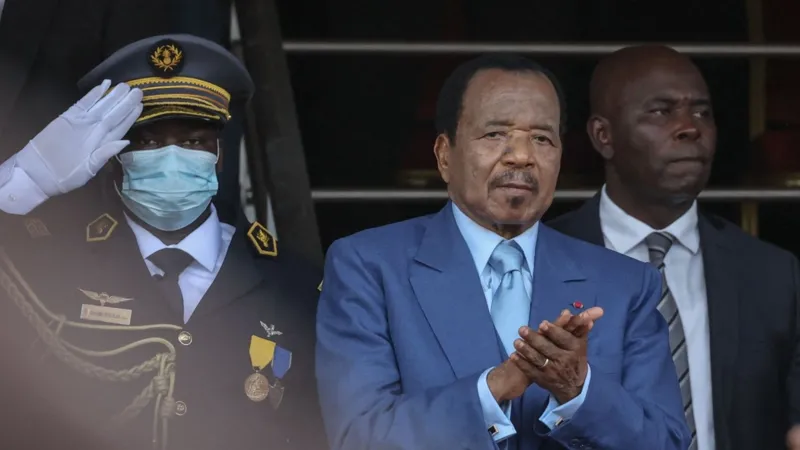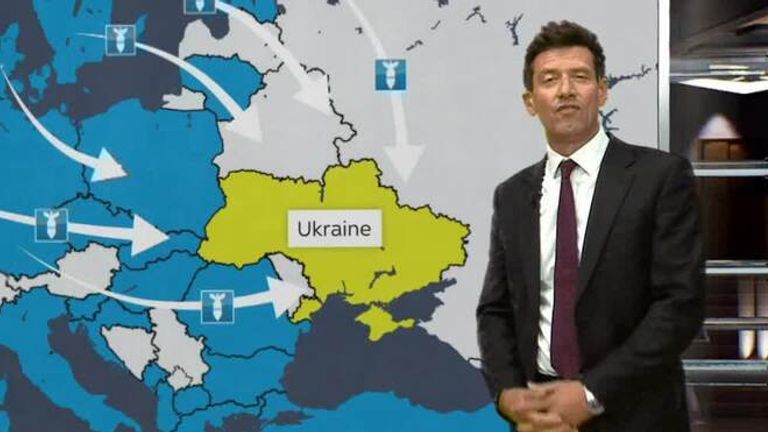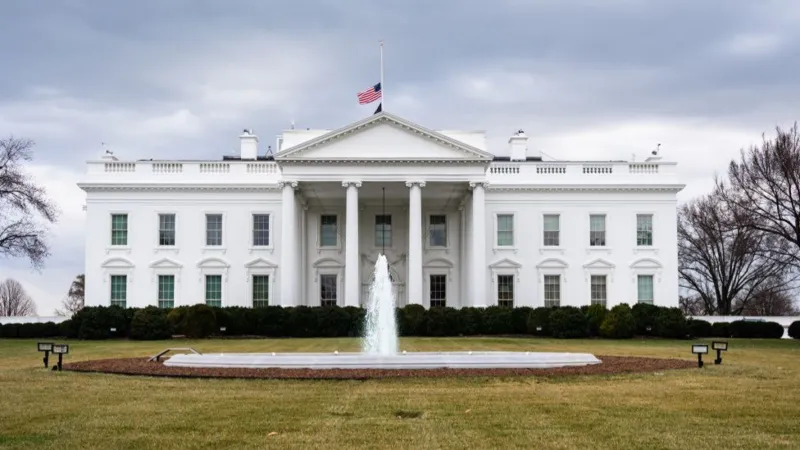King Charles's first state visit: What to expect from Germany trip
It's second time lucky for King Charles's first overseas state visit, when he touches down in Germany on Wednesday.

It should have begun at the weekend in France, but when it looked like the King was flying into a riot zone the initial stage of the visit had to be postponed.
The French protests were a reminder that even fairy-tale palaces have real-world political consequences, and it became impossible for President Macron to host King Charles at Versailles, with the prospect of angry protesters outside the gates.
A bouquet of tear gas and unemptied bins wasn't exactly the right atmosphere for the diplomatic courtship of a state visit.
So several days later than planned, a curtailed trip is getting under way again, with King Charles and the Queen Consort Camilla arriving in Berlin for a three-day visit.
But the underlying purpose remains the same. There is a symbolic importance attached to the first state visit of a new reign and this is about showing that Europe is the UK's diplomatic priority.
"There is an obvious rationale for the visit - to improve relations after Brexit," says Sir Vernon Bogdanor, leading constitutional expert and historian.
Such trips are made on the advice of the government and all the background briefings have been that this will be an important statement about rebuilding relationships with European neighbours.
This is the first state visit by a British monarch for eight years and it will reinforce what Buckingham Palace called "shared histories, culture and values".
It follows a meeting between the King and European Commission President Ursula von der Leyen when a Northern Ireland Brexit deal was announced.
After Queen Elizabeth II's coronation in 1953, her first trip was a tour of Commonwealth countries. For King Charles 70 years later, the priority is to build bridges with European allies, particularly at a time of pressure over Ukraine.
Author and historian Sir Anthony Seldon said it was a message to Germany that "Britain might have left the European Union, it is not leaving the most powerful country in Europe".
That this was originally planned as a dual trip to France and Germany was a signal that neither country's importance to the UK could be questioned, they were both being given equal billing, says royal expert Professor Pauline Maclaran.
Perhaps some of the more dramatic moments would have been in France - "what could be more cinematic than travelling down the Champs Elysees?", says Prof Maclaran.
But this is about realpolitik as well as rapprochement and King Charles will become the first British monarch to give an address to Germany's parliament, the Bundestag.
But what impact will King Charles's trip make? Do state visits have much cut through in the 21st Century?
"It's a really big deal," and will make a much bigger impression than a PM's visit, says Sir Anthony Seldon, who argues "we consistently underestimate the significance".
For better or worse, King Charles is an instantly recognisable global figure, wherever he goes there will be cameras, commentary and crowds.
"The monarch is a central part of how the UK projects soft power," says former diplomat and ambassador Tom Fletcher.
Mr Fletcher, now principal of Hertford College Oxford, says for such trips "the theatre matters as much as the substance".
During the late Queen Elizabeth II's long reign there were state visits that became historic in their own right, recognising a changed relationship, like the first visit to India after independence in 1961, the post-apartheid visit to South Africa in 1995 and the bridge-building visit to Ireland in 2011.
At the centre of all this is the King himself and he must have been disappointed at how the first part of the trip was called off.
Particularly when Prof Maclaran believes that this is the type of serious role that the King would enjoy. "There's an obvious sense of purpose to it," she says.
Such visits, with their set-piece speeches, are a chance to put down a marker for his reign.
Also in the background this week is another headline-grabbing royal visit - Prince Harry arriving in London for a court case against Associated Newspapers.
Prince Harry is a magnet for press attention, he's a rock star of news stats, so the timing risks an awkward clash that could overshadow the King's visit.
With the inaugural state visit already delayed, Buckingham Palace won't want any more distractions or disruptions and will want the carefully choreographed events in Germany to get the trip back on track.
-bbc







